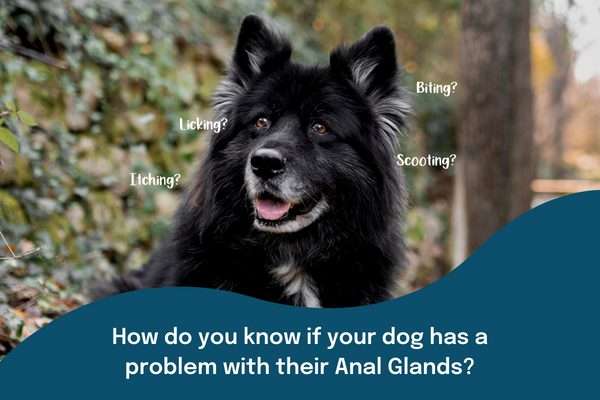
How do you know if your dog has a problem with their anal glands?
|
|
Time to read 3 min
|
|
Time to read 3 min
Anal glands are also known as anal sacs. They’re scent glands that can be found on either side of your dog’s rectum. When your dog needs to take a poop, these normally express themselves – i.e. they empty. And when they do this, your dog’s scent is left behind in their stools.
However, sometimes dogs don't release this scent when they poop and this is when they can start to have problems with their anal glands.
So then what happens is this material builds up in their anal sacs, causing issues for them – often itchy, uncomfortable ones! It’s this increased pressure that builds up makes daily life very uncomfortable, hence the itching, licking, scooting, and biting.
Look out for these common signs:
At some point, these anal glands will rupture, which isn’t pleasant for anyone and can even lead to bleeding and further complications, including an expensive trip to the vets
Here are a few reasons why your dog’s anal glands aren’t expressing themselves naturally:
For some dogs, this can be a one-time thing, for others – perhaps yours, it can be regular to the point of it becoming a health issue.
It’s not a rule, but generally smaller breeds tend to experience anal gland issues more than others. Also, if your dog has inflammation, or food allergies, they might experience anal gland problems that can lead to scooting.
If your dog has anal gland issues they will need to be expressed to help prevent a blockage and infection.
Whilst you can do this at home, if you've been taught how by a professional, if you're not confident or don't want to deal with a potentially smelly and messy job then it’s best to get an appointment with your vet, or some groomers can do this too. However, your vet will ensure that their anal glands aren’t infected. Of course, if they are infected or have ruptured, your vet will need to give them medical attention.
It’s key to monitor your dog’s behaviour closely and help see to them if they’re showing the typical signs of scooting or other itching/biting.
If you need to get more fibre into your dog's diet a great way of doing this is by given them a high fibre supplement.
Our Scoot Stopper chews are full of veterinary approved ingredients such as pumpkin, dandelion root, beet pulp, flaxseed and psyllium seed husk that help firm up poops. Plus, the added prebiotics help maintain a healthy gut.
If your dog isa bit funny about chews you could also try Pumpkin Powder either sprinkled over their food, made into a puree or even mix it with yoghurt and freeze in moulds to make a healthy, frozen treat for them!
Adding probiotics to your dog's diet can also benefit the health of their anal glands as having a healthy gut leads to healthier and firmer poops meaning your dog's glands will express better.